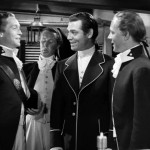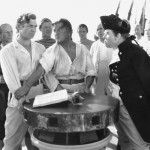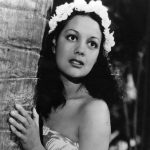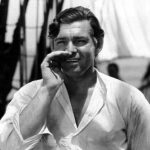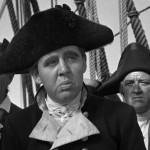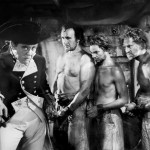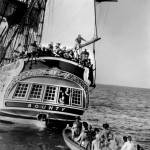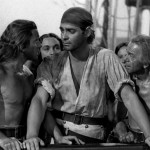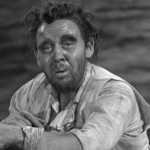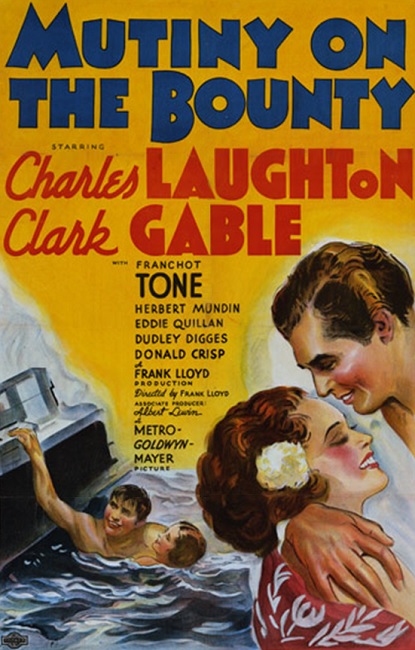
Mutiny on the Bounty – 1935
We’re off on the high seas for an adventure! The Bounty – a merchant ship owned by the King of England, charged with procuring breadfruit plants from Tahiti. It’s Captain, the cruel Captain Bligh, played by Charles Laughton. Lieutenant Fletcher Christian, our hero and all around good guy, is played by Clark Gable. That would make it the second year in a row that Gable was in the Best Picture winning movie. This is a story that has had several film adaptations. As a matter of fact, two years earlier, Errol Flynn starred in an Australian version that was not very successful. There were even two movie re-makes done in later years starring such big names as Marlon Brando, Anthony Hopkins, and Mel Gibson.
Obviously it is a popular story, and if you don’t know it, you need look no further than the title. There was a boat named the Bounty, upon which there was a Mutiny. Pretty simple. But there was clearly more to it than that. Despite the fact that I knew what was going to happen, they did a good job of building up to the inevitable, holding my interest.
I have often heard the name of Captain Bligh mentioned in connection with harsh cruelty, and sure enough, in Mutiny on the Bounty, my expectations were met. But now I at least know the context. Laughton acted the part well. I very quickly hated the character. His cruelty bordered on insanity right from the first time he is on the screen and it almost never let up. But after a while, I began to realize that there was a problem.
The problem was with the script, not with Laughton’s performance. The character was so constantly mean and sadistic that he was very one dimensional. The writers seemed to beat you over the head with how horrible the character was supposed to be. There was no subtlety and therefore was not very realistic. As I did my research, I learned that the real Captain Bligh was not as extreme a man as was depicted in the film. He was apparently no more cruel than any other Captain of his day. However, as a film, it was certainly entertaining to see the depths to which the despicable character sank. It made me want the mutiny I knew was coming all the more.
They did, at least, give him one moment of worth. When he and those loyal to him were cast off and left adrift in the middle of the ocean with little hope of ever reaching the shores of England, he was able to get his faithful followers back home alive. During that terrible voyage, he showed leadership skills and even compassion to his sick and starving men.
Then there was the character of Fletcher Christian. Noble and honorable, he seemed completely justified in his mutiny. Who wouldn’t rebel against such an insane tyrant? His character was a little more realistic. He was at least conflicted between his sense of duty and his desire to put an end to Bligh’s cruelty. And, of course, Gable put in another fine performance.
Tahiti was depicted as a true paradise with happy and beautiful people – especially Tehani and Maimiti. They got the soft-focus treatment when they were introduced. I am really starting to see the trend in movies of that era, giving beautiful women soft-focus to make them appear more ethereal and alluring whenever possible.
One thing I really liked about the movie was its treatment of the rough and dangerous ocean waters and powerful ocean storms. The violent waves, the howling winds, and the constant spray were very well done. The actors must have had a difficult time of it during filming. That aspect of the movie seemed very realistic and was exciting to watch. So Hollywood took some artistic license with historical facts. It was neither the first, nor the last film to do that.
Interesting note: Apparently, in reality, the utopian society that the noble Fletcher Christian and the mutineers tried to create on the island of Pitcaim was a colossal failure. Most of them, including Christian, died violent deaths as the men devolved into drunkards, rapists, and murderers.
